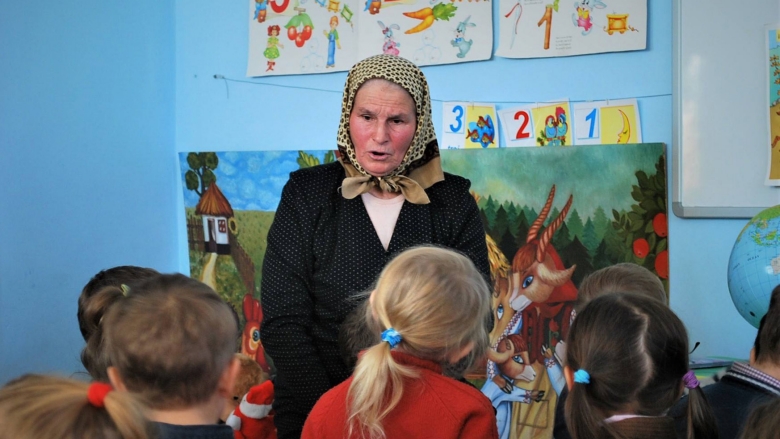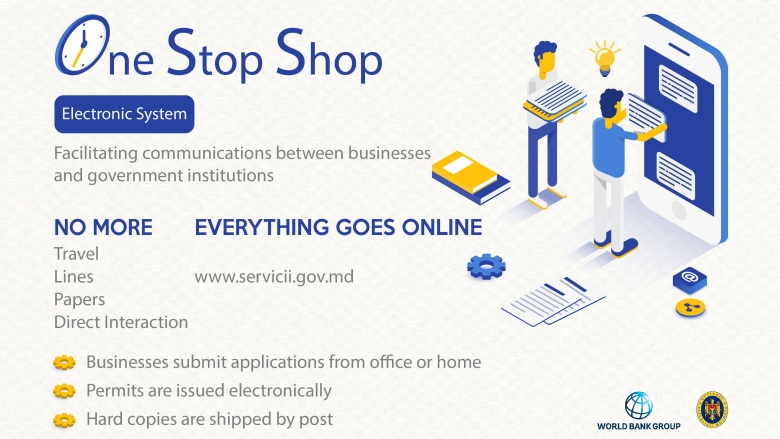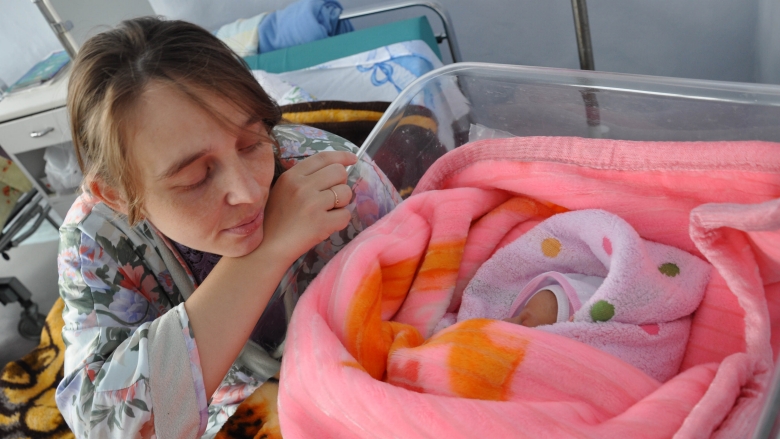Results
From IDA Funded Operations in 2000-2017
Competitiveness
- Online one-stop shop for business permits inaugurated in 2018; first set of 29 online permits fully digitized.
- Number of permitting documents reduced from over 420 to 150 in 2017.
- In 2016–18, 145 matching grants provided for international quality certification, production upgrades, business development, export promotion and job creation, resulting in 384 new jobs.
- Adoption of European Union (EU) catalogues for seeds, fertilizers, and plant protection yielded better quality inputs, reduced input costs, and increased competitiveness.
- $ 21 million provided in business loans to 108 exporters increased exports and created over 420 jobs.
Agriculture
IDA-funded operations:
- $ 30 million disbursed to rural entrepreneurs and businesses during 2003–13, created over 1,000 business start-ups and 5,600 jobs.
- 26 irrigation subprojects financed, 3,000-hectare on-farm irrigated areas rehabilitated, and 38,000 farmers trained in the field of irrigation in 2008–12.
- In 2013, roughly 60,000 farmers, of which 70 percent were small farmers, were compensated for losses incurred due to a catastrophic drought, preventing rampant capital depletion and livestock destocking.
- Over 180 farmers received matching investment grants and just-in-time business advice on post-harvesting operations during 2012–18. 34 productive alliances are now selling and exporting fresh produce at premium prices, creating jobs and improving rural livelihoods.
- During 2012–18, extended sustainable land management practices covered approximately 65,000 hectares, leading to improvements in productivity, produce quality, and long-term land protection.
Education
- Per-student financing formula introduced, increasing transparency and efficiency in general education (grades 1–12).
- The Program for International Student Assessment (PISA) 2015 registered improvements in education quality in reading (up by 28 points), math (up by 23 points), and science (up by 15 points), due to training programs for 2,700 teachers and 1,000 school managers, as well as the rehabilitation of six hub schools. 65 rehabilitated kindergartens provided preschool services to 1,100 children, increasing enrollment from 77 to 82 percent.
Health
- National health insurance scheme now covers 85 percent of the population versus 76.7 percent in 2007.
- Rehabilitation of 22 primary health care facilities, and construction of 57 primary care centers during 2007–14, improved the quality of health services.
- Average hospital stays reduced from 9.5 days (2011) to eight days (2015).
Communities
- Over 850 community infrastructure facilities have been upgraded: 404 schools, 278 kindergartens, and 191 water management projects, benefiting roughly 1.2 million people.
- Installation of central heating systems increased winter school attendance by 5 percent.
Quality of Public Services (Governance)
- 50 percent of public institutions migrated their information systems to the Government’s Cloud Computing Infrastructure, generating $ 1.8 million in savings.
- Open Government Data and General Government Services Portal were launched, facilitating a better interaction between 495,000 people (51.8 percent of them women) and government service providers.
- 28 sectoral and cross-sectoral web-based platform-sharing services were launched, reducing administrative burdens and corruption.
- Modernization of Government Services Project re-engineered three important government services: (1) driver licenses in EU format; (2) unemployment insurance; and (3) determination of disability and work capacity.
Bank Group Contribution
The International Finance Corporation’s (IFC) committed portfolio in Moldova is $ 17.5 million (fully disbursed) and consists of 87 percent loans and 13 percent equity. IFC technical assistance is supporting agri-business, in particular improving food safety standards to bring them in line with EU practices and helping the Government improve and streamline the regulatory framework for businesses.
The Multilateral Investment Guarantee Agency’s (MIGA) outstanding gross exposure amounts to $ 22.8 million in two projects supporting foreign bank subsidiaries, including leasing and microfinance operations. MIGA’s support signals its efforts to underwrite projects, encourage foreign direct investment, and support the WBG’s private sector development strategy.
Partners
The WBG has provided leadership and significant support to enhance development partner coordination, improve aid effectiveness, and coordinate common views on key reforms, especially in addressing concerns in the governance sector, an area which has been subject to public communications from the World Bank.
A common stance on budget support with other partners, especially the International Monetary Fund (IMF), EU institutions, and EU member countries, promoted the implementation of key structural reforms in the banking system and the financial sector more broadly. The WBG also coordinated the process of developing a multi-donor Briefing Book in 2015–16, an important document for donor policy dialogue with the Government of Moldova.
WBG operations have also attracted support from other development partners, including the Global Environment Facility; the United Kingdom’s Good Governance Fund; the governments of the Netherlands, Sweden, Switzerland, and Japan; the United Nations Children’s Fund (UNICEF); and the U.S. Agency for International Development, all of which either co-financed IDA operations, financed carbon operations, or provided other forms of support, including for Advisory Services and Analytics.
The Bank has provided technical leadership in sectors where it has leveraged resources from other partners. It provided technical assistance on the Land Transport Infrastructure Strategy and a $ 16 million IDA credit, after which the European Bank for Reconstruction and Development and the European Investment Bank provided parallel financing of $ 450 million to the State Roads Administration to improve national roads and manage the road network.
Moving Forward
The WBG has a long-term relationship with Moldova. Although the country still faces a number of economic and political uncertainties, the Bank will continue to support reforms when opportunities arise.
Going forward, there is likely to be less emphasis on policy-based lending and more on investment programs with tangible results for the population. The future program will be anchored in current CPF priorities, namely, improving economic and service governance, as well as improving skills and supporting job creation.
IFC will continue its support to boosting competitiveness, particularly in the agribusiness sector, including further efforts to ensure food safety and quality and to develop new markets. It will also support public-private dialogue on regulatory streamlining to improve the overall business environment for firms.
Beneficiaries
Improving Enterprise Competitiveness
“I do recommend that all who consider developing their business treat each stage seriously. I know that there are no general rules that would lead you to success, but my recipe consists of innovation, a lot of work, and collaborating with partners that offer their help when needed. One of those partners is the Competitiveness Enhancement II Project,” says Nicanor Negru, entrepreneur and beneficiary of CEP II project.
Targeting Social Assistance
“It’s important help for us. The money we receive helps us pay for food, school supplies and also helps us buy clothes,” says Sergiu Robu, head of a rural family of 11 children. “My children are growing up; we need more money to buy food, clothes, and to finish the construction of our house.”
Empowering Local Communities
In Transnistria, 98 percent of Parcani residents voted to put a much-needed roof on the local school. Until two years ago, there was no roof at all. “We couldn't use the third floor or the second floor, really,” says 9th-grader Carolina Gaidari. “It was impossible to concentrate because of the damp and the mold in the classrooms.”
Her classmate Dmitrii Nicolaev agrees. “We like it very much now. There is no leaking water and we don't have to work with buckets everywhere.”



